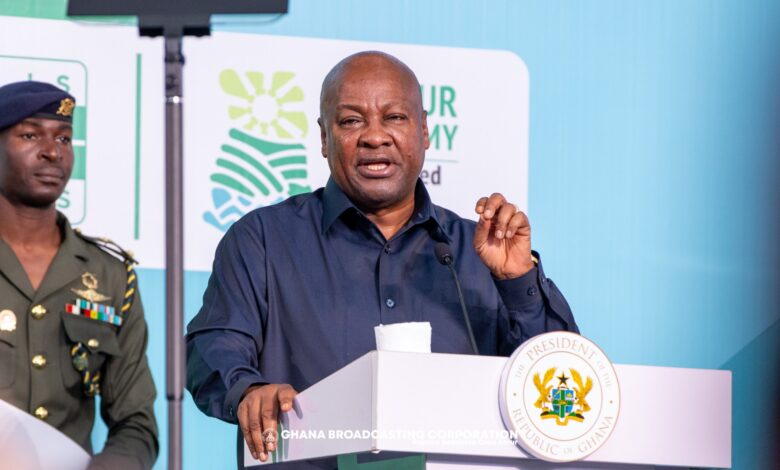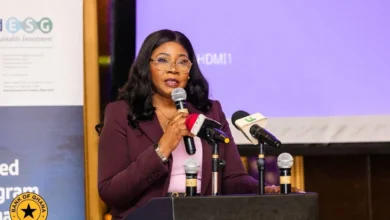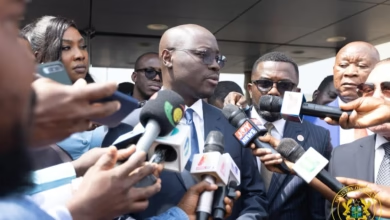AGOA is unlikely to be renewed after Trump’s tariffs on African exports – Prez Mahama
AGOA is unlikely to be renewed after Trump’s tariffs on African exports – Prez Mahama

President John Dramani Mahama has hinted that the African Growth and Opportunity Act (AGOA) is unlikely to be renewed after the United States (US) imposed tariffs on exports.
The US President, Donald John Trump, after assuming office, imposed trade tariffs on African countries, including Ghana, which now faces a 15% tariff on exports to the US market.
AGOA was initially scheduled for renegotiation in September 2025, but President Mahama explained that the US administration under Donald Trump disrupted the global trade system by imposing tariffs on countries that previously enjoyed duty-free access, leaving little hope for the agreement’s renewal.
President Mahama made the remarks during his maiden presidential media encounter since he assumed office on January 7, 2025.
“Countries like Africa enjoyed zero tariffs in the US because we were in the developing world. It was a concession that the US gave. In comes President Trump. He has a more transactional mindset. He says the US has been taken for granted for a long time, so even countries like Ghana in Africa have been slapped with a 15% tariff on us from a zero tariff.
AGOA is technically dead. It was due for renegotiation in September, but there is no way with this 15% tariff that AGOA is going to be renewed.
We are just watching carefully. The power to impose tariffs is that of Congress, but in this case, the US president, Donald Trump, always pushes the limit,” he said.
Since its enactment in 2000, the African Growth and Opportunity Act (AGOA) has been at the core of U.S. economic policy and commercial engagement with Africa.
AGOA provides eligible sub-Saharan African countries with duty-free access to the U.S. market for over 1,800 products, in addition to the more than 5,000 products that are eligible for duty-free access under the Generalized System of Preferences program.
In 2015, Congress passed legislation modernizing and extending the program to 2025. However, the Trump administration’s shift toward protectionist trade measures raised doubts about the programme’s continuation.




